Author/Yali, Editor/Guo Ji’an
"I won. Thank you, Judge."
At 4:58 pm today, as soon as the "iQIYI" Celebration of More Than Years "case ended, the plaintiff Wu Shengwei eagerly posted this Zhihu update.?

It all started with the hyped-up "Qingyu Nian" advanced on-demand event last year. In December last year, "Qingyu Nian" launched an advanced payment model during the broadcast, allowing members to unlock the advanced on-demand privilege at a price of 3 yuan per episode, or pay 50 yuan to watch 6 episodes in advance.
The news broke and public opinion was in an uproar. Lawyer Wu Shengwei believed that the platform had violated his rights as a golden VIP member in disguise, so he sued the broadcasting platform iQIYI in court with a complaint.
This afternoon, the case was handed down at the Beijing Internet Court. The court ruled in court that iQIYI’s "iQIYI VIP Member Service Agreement" was partially invalid; the "paid ahead on-demand" clause updated after the defendant purchased the membership service was not effective for the defendant; iQIYI should continue to provide the defendant with the original membership rights.
Soon, people began to carry the results of the trial on social platforms such as Weibo. Luo Gus, a lawyer who had also sued Tencent Video for "Qingyu Nian", also summarized the verdict on Zhihu, which was also the four points that many people summarized when discussing the results of the trial:
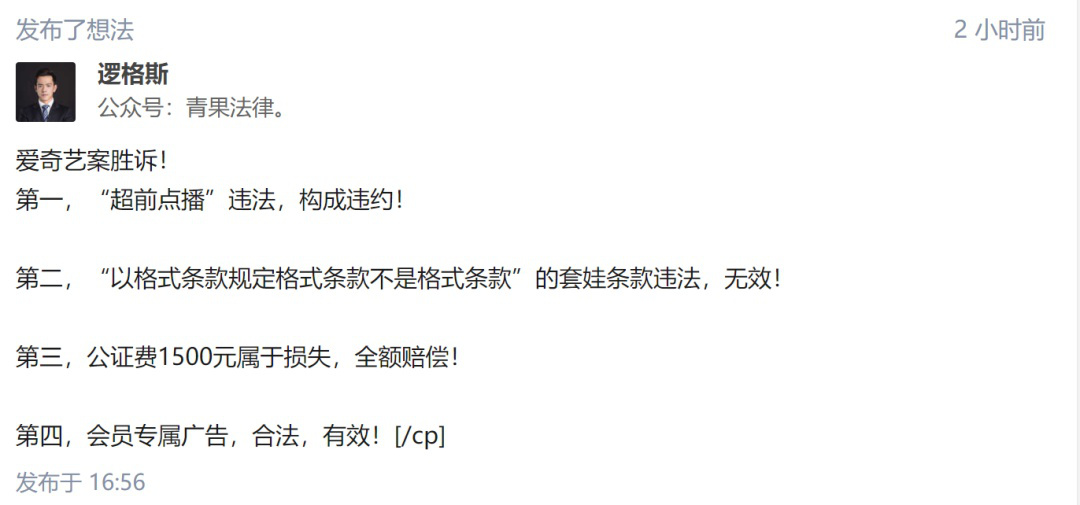
However, is the "advanced on-demand" model really illegal? Entertainment Das Kapital, who watched the live broadcast of the entire trial, found that in fact the court did not find the advanced on-demand business model illegal. The plaintiff in this case was able to win the case mainly because the unilaterally changed new contract damaged the original rights and interests of members.
iQIYI also issued a statement at the first time, saying that "there is nothing wrong with the advanced on-demand model". The court held that iQIYI’s launch of the advanced on-demand model is justifiable, and the change of the contract is necessary and reasonable in the industry. It does not deny the entire business model.
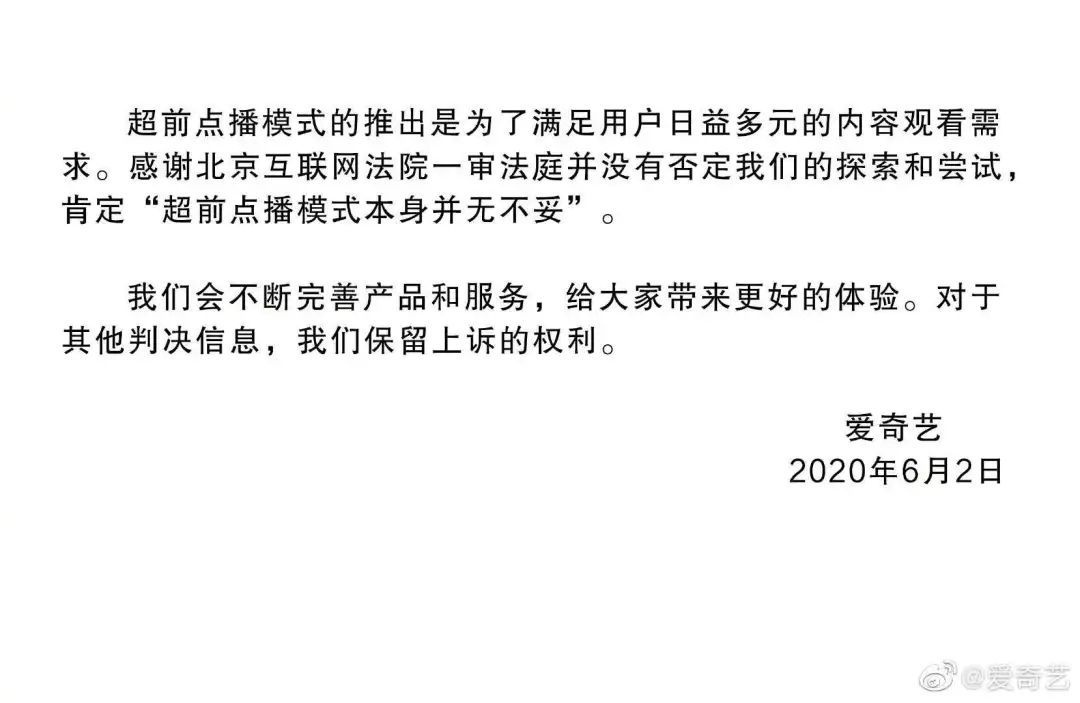
The plaintiff in the "Qingyu Nian" case won, but "advanced on-demand" is not illegal
We shall focus on unraveling the first two points mentioned by Venlogus, which are currently the most controversial.
First, "advanced on-demand" is illegal and constitutes a breach of contract.
In fact, the judge had already emphasized in his sentencing, "Relying on Internet technology, people’s differentiated needs for work and life are gradually satisfied. The’membership-based ‘service model launched by video platforms based on consumer willingness has been accepted by the public. It is not inappropriate to explore new video broadcast methods on this basis."
To be precise, the judgment of "Qingyu Nian" in breach of contract was mainly because the platform did not clearly inform users before changing the membership contract, and the new "advanced on-demand" model essentially damaged the interests of users. Because the plaintiff Wu Shengwei purchased iQIYI members in June 2019, but iQIYI added the advanced on-demand clause without authorization on December 8, 2019. The violation is this act of changing the contract, not the advanced on-demand model.
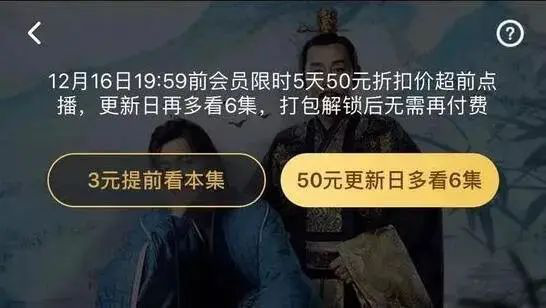
In other words, if you purchased a member after iQIYI changed the contract on December 8, 2019, you can be considered to agree with the advanced on-demand model, and it is unlikely to win the case like this plaintiff. This legal precedent cannot benefit others and has certain particularities.
Second, the nesting doll clause that "stipulates that the standard clause is not the standard clause by the standard clause" is illegal and invalid.
The judgment concerns a common "standard clause trap" in contracts. In its December 2019 membership agreement, iQIYI mentioned that "both parties agree that the aforementioned exemption and limitation of liability clauses do not belong to the clauses stipulated in Article 40 of the Contract Law that’exempt its liability, increase the liability of the other party, and exclude the main rights of the other party ‘. That is, both you and iQIYI agree to the legality and validity of the aforementioned clauses, and you will not claim that the clauses in the agreement are illegal or invalid on the grounds that iQIYI has not fulfilled its obligation of reasonable presentation."

The court held that the iQIYI membership agreement was an agreement unilaterally issued by the platform without consultation with the other party, and was a standard clause stipulated by law. The above statement violates the mandatory provisions of Article 40 of the Contract Law on the validity of standard clauses. At the same time, the standard clause requires the user to promise to give up claiming that the standard clause is illegal or invalid on the grounds that "iQIYI company has not fulfilled the obligation of reasonable presentation". It is a situation where the standard clause is used to simulate that it has fulfilled its legal obligations, so it is invalid.
That is to say, the court held that iQIYI’s membership agreement contained multiple cases suspected of exempting itself from liability and increasing user liability, which essentially violated Article 40 of the Contract Law (the main content is: if one party provides a format clause to exempt its liability, increase the liability of the other party, and exclude the main rights of the other party, the clause is invalid), so it is not supported.
Similarly, the statement in the iQIYI membership agreement that "you will not claim that the terms of the agreement are illegal or invalid on the grounds that iQIYI has not fulfilled its reasonable obligation of presentation" is in the form of standard terms to relieve iQIYI of its legal obligations as the drafter of the standard terms, and it is also illegal.
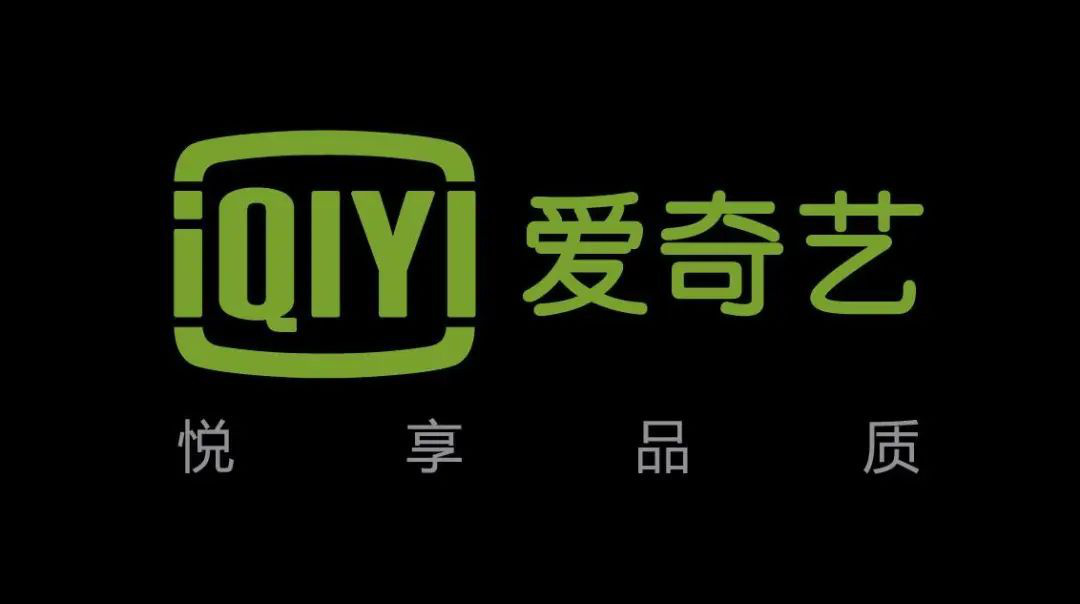
After listening to the entire judgment, it is not difficult to find that the court can understand the motives and reasons for iQIYI’s implementation of the advanced on-demand model, and also acknowledges that its unilateral change of contract is necessary and reasonable in the industry. However, it still emphasizes that the implementation of the new model should be based on the principle of not harming the rights and interests of the original members.
Regarding the two points of contention between the two parties: first, whether the advance on-demand harmed the interests of the original members; second, whether iQIYI fulfilled its obligation to inform in advance before changing the terms, the court’s answer was negative.
Therefore, if Youku, iQiyi, and Tencent want to implement the advanced on-demand model or other’VVIP ‘models in the future, they must clearly mark the price. Before changing the contract, users should also be clearly reminded in a prominent position. The advanced on-demand model is not illegal, and it is illegal to unilaterally change the contract and damage the interests of users.
iQIYI launches Star Diamond membership, from "advanced on-demand" to upgrade price increases
Obviously, after the "Qing Yu Nian" advanced on-demand turmoil, the platform also realized the risk of this model. Almost all the episodes that implement the advanced on-demand model on the market today have key information such as price and episode number written in the "drama chasing calendar" before going LIVE.
iQIYI also launched Star Diamond members not long ago. Star Diamond members not only have the rights of Gold VIP members, but also can watch advanced on-demand and Star Diamond Cinema content, covering kiwi Star Diamond members, FUN members, literary members, sports public members, and VR members. Multi-member rights.
Many rights and interests correspond to a high price: the price is 60 yuan per month, 40 yuan per consecutive month, and 398 yuan per consecutive year. Compared with the previous price of 19 yuan per consecutive month and 218 yuan per consecutive year for Gold VIP members, the price of Star Diamond VIP has almost doubled.?
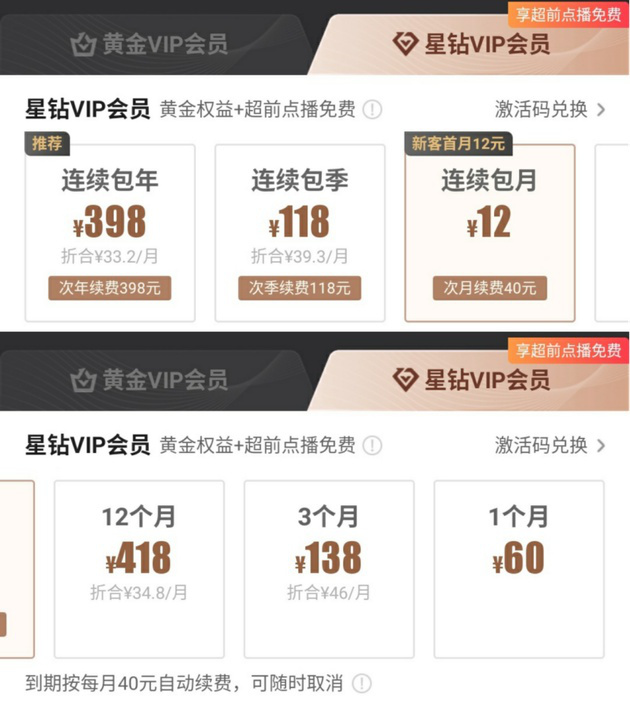
The platform here is pushing Star Diamond members, and there are people on Weibo and various groups every now and then sending coupons to sell Youku, iQiyi, and Tencent 99 yuan membership cards. The previous members are really worthless.
It was to be expected that iQIYI’s focus would gradually shift to increasing Star Diamond membership. From the original dark test of advanced on-demand to the packaging of advanced on-demand content into Star Diamond members, the purpose of this upgrade was obviously to increase the average income of a single paying user.
However, after the launch of Star Diamond members, iQIYI will face a greater test in terms of content: is the existing content of the platform sufficient to support the price of Star Diamond members?
In terms of price alone, the existing Star Diamond members cost a full 180 yuan more a year than the previous Gold members. At present, users who pay extra can generally watch 8 to 10 episodes in advance for episodes that are ahead of the demand. We calculate according to 3 yuan per episode on demand, and it costs up to 30 yuan to order a single drama. A user must encounter at least 180/30 = 6 dramas that are willing to be ahead of the demand a year. Buying Star Diamond members will not lose money (excluding Star Diamond members, FUN members, literary members and other rights).
The question is, with the quality of the shows currently available on video websites, can a user encounter six shows that are willing to get ahead of the game in the next year?
The platform obviously knows that high-quality content is the core of supporting member upgrades. This can be seen from the recent iQIYI launch of Mist Theater, which focuses on 12-episode boutique skits.

In the long run, the advanced on-demand model is conducive to the future development of the film and television industry. If the platform can share the revenue from the advanced on-demand model or upgrade the membership price with the filmmakers, encourage the filmmakers to produce better quality content, and achieve a positive cycle, the industry may usher in a true C-end payment era in the future. According to Entertainment Capital, after launching the Star Diamond membership, iQIYI is already discussing the issue of revenue sharing with the production company.
The ideal situation is that the platform gradually cultivates the habit of users to watch "advanced on-demand" or buy more advanced members, and can share the revenue with the filmmakers, and the quality of the series content continues to improve; the worst situation is that users believe that the platform content is not worth the price, and some users will even return to watch pirated copies. The film and television industry continues to be trapped in the cycle of platform losses and filmmakers making no money.
The case of "iQIYI" Qingyu Nian "is a landmark event in the dynamic game between the platform and users.
The official understands the behavior of video websites to explore more business models in order to meet the differentiated needs of users, and believes that it is not inappropriate to advance the on-demand model. But at the same time, it also believes that the healthy development and operation of the business model is based on following commercial terms, respecting user feelings, and not violating relevant laws and regulations. This will be a prerequisite for the platform and users to continue to run in in the future.

Under the official affirmation, it is an inevitable trend for video website members to gradually move towards fine grading, and the advanced on-demand model or the "VVIP" model like Star Diamond members will become more and more common. But compared with before, the platform will pay more attention to user experience when implementing the new model. Whether it is the platform or the user, it has come to a moment when it has to change.
Platforms face the challenge of upgrading paid content, and users should also try to give platforms more understanding. The running-in situation between the two sides determines the future of the film and television industry.
